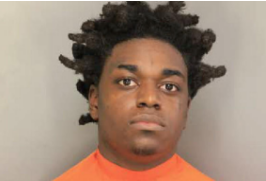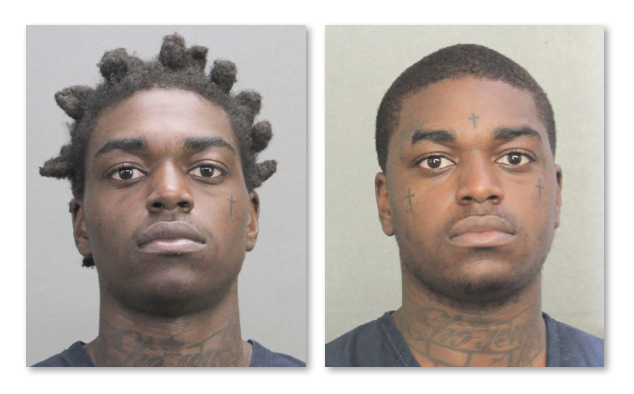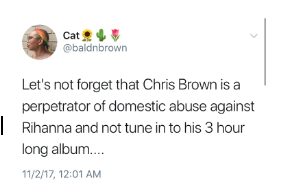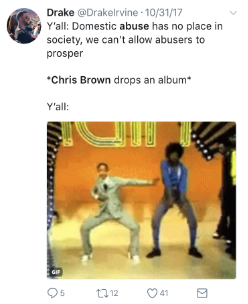Rappers or Rapists: You Decide.
November 9, 2017
Artists become famous through their fan bases, as fans pay for music, concerts, and merchandise. Although this fame can almost immortalize artists, they are just humans. And not always admirable ones.
2009: Chris Brown was charged with battery after abusing his then-girlfriend Rihanna the night before the Grammys. Years later, he continues to exhibit signs of violence against women during interviews and shows.
2016: Jahseh Onfroy, more commonly known as XXXTentacion, was charged with domestic abuse, battery of a pregnant woman, tampering with a witness, and false imprisonment.
2016: Dieuson Octave, otherwise known as Kodak Black, has been accused of rape multiple times, his most recent sexual offense being assaulting a teenage girl in a hotel room in South Carolina. According to the Sun-Sentinel, he told the girl he “couldn’t help himself.” After being charged, he was released on $100,000 bail, though he could still serve time in jail.

This trend of violence in the music industry must end and consumers must stop excusing this behavior because of an artist’s talent.
Fans of Kodak Black have explained to me that they don’t condone rape, they just like his music. I interviewed a senior at Pentucket who is a fan of rap, rock and sometimes pop music. He explained that he is a fan of Kodak Black, stating that “His music’s, like, catchy.” This student “didn’t know he’s a sex offender,” but has “heard he’s got a few [court] cases.” After elucidating the extent of Octave’s violent crimes against women, this student stated that his views were “not really” changed, “I just like him for his music.”
However, the $100,000 bailed Octave out could have easily come from music streaming, merchandise sales, or ticket revenue. In fact, the student estimated that tickets were about $50 each.
As is evident, individuals on Twitter have considered this and are expressing their disdain for those who continue to support artists even after rape, abuse, and other crimes, particularly those against women.
Consumers must consider the ethics of supporting artists who commit inexcusable acts; “catchy songs” can be great, but social and financial support can ultimately allow an artist to thrive despite their crimes. Though many seem to separate artists from their music, they should be considered one in the same.




Abby Coffman • Dec 6, 2017 at 4:08 pm
I completely agree with your argument. It is disturbing that music artists are often not treated like normal people when it comes to criminal justice. Supporting artists involved in assault/other crimes by purchasing merchandise or concert tickets most definitely does not help the situation. It is important that these people receive the consequences that they deserve.
Meaghan O'Neil • Dec 4, 2017 at 12:02 pm
I think this article poses a valid argument; although I listen to all of these artists, I take their productions with a grain of salt. I completely agree that their actions are disgusting. I do not in any way condone them, but I am not sure if I should stop listening to songs by these artists completely? I feel as if this is a moral decision to ponder.